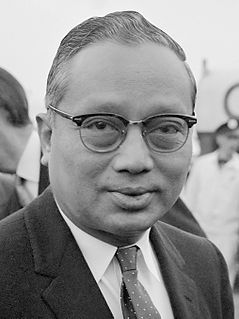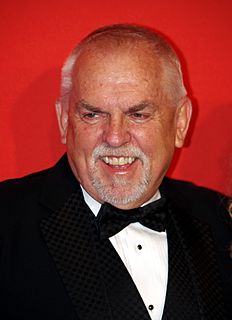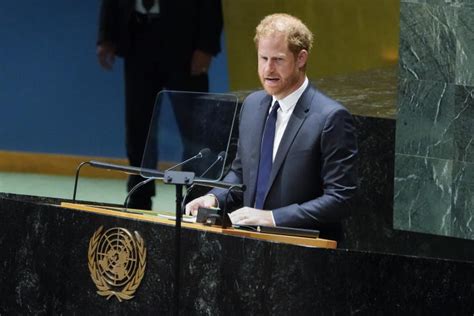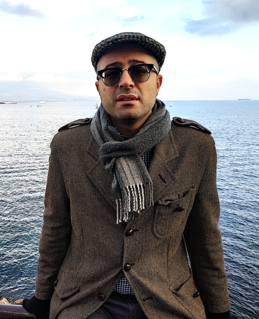Top 643 Harlem Renaissance Quotes & Sayings - Page 11
Explore popular Harlem Renaissance quotes.
Last updated on April 16, 2025.
In a sense, Open City is a kind of Wunderkammer, one of those little rooms assembled with bric-a-brac by Renaissance scholars. I don't mean it as a term of praise: these cabinets of curiousities contained specific sorts of objects - maps, skulls (as memento mori), works of art, stuffed animals, natural history samples, and books - and Open City actually contains many of the same sort of objects. So, I don't think it's as simple as literary inclusiveness.
The three values which men had held for centuries and which have now collapsed are: mysticism, collectivism, altruism. Mysticism — as a cultural power — died at the time of the Renaissance. Collectivism — as a political ideal — died in World War II. As to altruism — it has never been alive. It is the poison of death in the blood of Western civilization, and men survived it only to the extent to which they neither believed nor practiced it.
This is your heritage,' he said, as if from this dance we could know about his own childhood, about the flavor and grit of tenement buildings in Spanish Harlem, and projects in Red Hook, and dance halls, and city parks, and about how his own Paps, how he had beat him, how he taught him to dance, as if we could hear Spanish in his movements, as if Puerto Rico was a man in a bathrobe, grabbing another beer from the fridge and raising it to drink, his head back, still dancing, still steeping and snapping perfectly in time.
All over the world major museums have bowed to the influence of Disney and become theme parks in their own right. The past, whether Renaissance Italy or Ancient Egypt, is re-assimilated and homogenized into its most digestible form. Desperate for the new, but disappointed with anything but the familiar, we recolonize past and future. The same trend can be seen in personal relationships, in the way people are expected to package themselves, their emotions and sexuality, in attractive and instantly appealing forms.
In the Renaissance, madness was present everywhere and mingled with every experience by its images or its dangers. During the classical period, madness was shown, but on the other side of bars; if present, it was at a distance, under the eyes of a reason that no longer felt any relation to it and that would not compromise itself by too close a resemblance. Madness had become a thing to look at: no longer a monster inside oneself, but an animal with strange mechanisms, a bestiality from which man had long since been suppressed.
The great intellectual tradition that comes down to us from the past was never interrupted or lost through such trifles as the sack of Rome, the triumph of Attila, or all the barbarian invasions of the Dark Ages. It was lost after the introduction of printing, the discovery of America, the founding of the Royal Society, and all the enlightenment of the Renaissance and the modern world. It was there, if anywhere, that there was lost or impatiently snapped the long thin delicate thread that had descended from distant antiquity; the thread of that unusual human hobby: the habit of thinking.
On the way from the Renaissance to our days we have enriched our experience, but we have lost the concept of a Supreme Complete Entity which used to restrain our passions and our irresponsibility. We have placed too much hope in political and social reforms, only to find out that we were being deprived of our most precious possession: our spiritual life. In the East, it is destroyed by the dealings and machinations of the ruling party. In the West, commercial interests tend to suffocate it. This is the real crisis.
I'm old-fashioned. I think William Blake and people in the Renaissance people were multi. Look at da Vinci, he was involved in science; and Michelangelo was dabbling in poetry. Both of them were painters and sculptors but they also involved themselves with architecture. I honestly don't know what happened in the '60s and '70s. If you sang rock and roll in America at that time or were involved in expressing yourself through music like that, then many thought you couldn't possibly be an artist. That thinking is archaic.
I'm one of the people who believes that our losses were greater than our gains. Because before the Civil Rights movement we had entrepreneurship in the black community. Right now, in Harlem, if I wanted to get a shoe repaired, I would have a hard time finding a black shoe repairman. On near about every third corner, you could find a decent black barber, decent black laundry, had restaurants in the neighborhood that were open 24 hours. The food was good at 3 o'clock in the morning as at 3 o'clock in the afternoon.
I've always thought it would be fun to update "Hansel and Gretel." I'd have these white parents in the suburbs with an income of fifty or sixty thousand dollars. Daddy loses his job, and the wicked stepmother says, "We could get along, we could keep our Mastercharge, if you'd just get rid of those shitty kids." Finally the father hires a limo and tells the driver, "Drop 'em off on Lenox Avenue in Harlem at two in the morning." These two little white kids land there. They're menaced. And this supposedly nice black lady says, "Would you like some candy?"
Itjtawy was ancient Egypt's capital for over four hundred years, at a period of time called the Middle Kingdom about four thousand years ago. The site is located in the Faiyum of Egypt, and the site is really important because in the Middle Kingdom there was this great renaissance for ancient Egyptian art, architecture and religion.
We are living in a renaissance of personal writing. People are rebalancing the impersonalization endemic to modern society with an increase in personal introspection. We have enough common psychology under our belts to know that psychology doesn't explain or heal everything and that it isn't the fulfillment of awareness, but its beginning. We are undergoing a shift in paradigms in which we are trying to develop new models for humanness and human responsibility. This is no small task. Our individual lives are placed under increasing pressure to respond adequately to both inner and outer change.
How this feels is I'm just another task in God's daily planner: The Renaissance pencilled in for right after the Dark Ages. The Information Age is scheduled immediately after the Industrial Revolution. Then the Post-Modern Era, then The Four Horsemen of the Apocalypse. Famine. Check. Pestilence. Check. War. Check. Death. Check. And between the big events, the earthquakes and tidal waves, God's got me squeezed in for a cameo appearance. Then maybe in thirty years, or maybe next year, God's daily planner has me finished.
Modern art to me is nothing more than the expression of contemporary aims of the age we’re living in. All cultures have had means and techniques of expressing their immediate aims – the Chinese, the Renaissance, all cultures. The thing that interests me is that today painters do not have to go to a subject matter outside of themselves. Most modern painters work from a different source, they work from within.
Depth, in a pictorial, plastic sense, is not created by the arrangement of objects one after another toward a vanishing point, in the sense of the Renaissance perspective, but on the contrary (and in absolute denial of this doctrine) by the creation of forces in the sense of push and pull . Nor is depth created by tonal gradation (another doctrine of the academician which, at its culmination, degraded the use of color to a mere function of expressing dark and light).
I'm what they call a 'non-black person of color': NBPOC. It's easy and seductive and common to mobilize around these identity issues, but often that's done at the expense of considering structural anti-blackness. That puts everything in a slightly different light for me, especially because of where I am and why - where I am in the world of the arts, where I live, in Harlem - and the music that I've been able to make, whom I've been able to make it with, who has nurtured me. It's not just about solidarity. It's actually about debt.
While I was drawn to the Renaissance, my first (unpublished) novels took place in modern times. When the subject of alchemy started creeping into my stories, an astute mentor observed that the bits about alchemy might fit better in another time frame. When I finally decided to weave the pieces about the medieval science into historical settings, a successful novel began to emerge. (And I dusted off that art history book, and put it to use once again.)
There are two principles on which all men of intellectual integrity and good will can agree, as a 'basic minimum,' as a precondition of any discussion, co-operation or movement toward an intellectual Renaissance. . . . They are not axioms, but until a man has proved them to himself and has accepted them, he is not fit for an intellectual discussion. These two principles are: a. that emotions are not tools of cognition; b. that no man has the right to initiate the use of physical force against others.
The law of love and compassion for all living creatures is again a doctrine to which we are all too ready to pay slip service. However, if it is to become a reality, it requires a process of education, a veritable mental renaissance. Once it has become a reality, national as well as international problems will fall into perspectives and become easier to solve. Wars and conflicts, too, will then become a thing of the past, because wars begin in the minds of men, and in those minds love and compassion would have built the defenses of peace.
Here's what I love: when a great writer turns me into a Jew from Chicago, a lesbian out of South Carolina, or a black woman moving into a subway entrance in Harlem. Turn me into something else, writers of the world. Make me Muslim, heretic, hermaphrodite. Put me into a crusader's armor, a cardinal's vestments. Let me feel the pygmy's heartbeat, the queen's breast, the torturer's pleasure, the Nile's taste, or the nomad's thirst. Tell me everything that I must know. Hold nothing back.
I am grateful to have been loved and to be loved now and to be able to love, because that liberates. Love liberates. It doesn't just hold - that's ego. Love liberates. It doesn't bind. Love says, 'I love you. I love you if you're in China. I love you if you're across town. I love you if you're in Harlem. I love you. I would like to be near you. I'd like to have your arms around me. I'd like to hear your voice in my ear. But that's not possible now, so I love you. Go.'
What's up?" Christian asked. "Need some hairstyling tips?" "Tips you stole from me? No thanks. But I hear you've got a really good bacon meatloaf recipe." It was worth it then and there to see his complete and total surprise. "Since when do you cook?" he finally managed to stammer. "Oh, you know. I'm a Renaissance man. I do it all. Send it if you've got it, and I'll give it a try. I'll let you know if I make any improvements." His smirk returned. "Are you trying to impress a girl?" "With cooking?" I pointed at my face. "This is all it takes, Ozera.
I can't get very excited about a musician who can do Art Tatum because I've got the Art Tatum records. I want to hear him take that and do something that hasn't been done. And there's enough of that going around that keeps the music very exciting. There's so many great young players coming out. I think we're in some kind of renaissance, especially in the rhythm section. I mean the musicians on drums and bass and guitar are really trying to figure out different ways to bring a rhythm section together.
Had there been no Renaissance and no Italian influence to bring in the stories of other lands English history would, it may be, have become as important to the English imagination as the Greek Myths to the Greek imagination; and many plays by many poets would have woven it into a single story whose contours, vast as those of Greek myth, would have made living men and women seem like swallows building their nests under the architrave of some Temple of the Giants.
The form of government that is most suitable to the artist is no government at all. ... One might point out how the Renaissance was great, because it sought to solve no social problem, and busied itself not about such things, but suffered the individual to develop freely, beautifully, and naturally, and so had great and individual artists, and great, individual men. One might point out how Louis XIV, by creating the modern state, destroyed the individualism of the artist.
The key strengths of civilizations are also their central weaknesses. You can see that from the fact that the golden ages of civilizations are very often right before the collapse. The Renaissance in Italy was very much like the Classic Maya. The apogee was the collapse. The Golden Age of Greece was the same thing. We see this pattern repeated continuously, and it is one that should make us nervous. I just heard Bill Gates say that we are living in the greatest time in history. Now you can understand why Bill Gates would think that, but even if he is right, that is an ominous thing to say.
Chroniclers of the role of paper in history are given to extravagant pronouncements: Architecture would not have been possible without paper. Without paper, there would have been no Renaissance. If there had been no paper, the Industrial Revolution would not have been possible. None of these statements is true.
As an artist, I identify with Sandro Botticelli. We know him as the man who painted Primavera and The Birth Of Venus. The goddesses and ancient subjects he chose represented virtues which were meant to inspire people. Then he went through a dark phase when he was listening to the sermons of Savonarola, who preached against the worldly pleasures of the Renaissance. But Botticelli's works live on, inspiring people to this day. Five hundred years after his death, he still has thousands of fans!
The great Christian art did not die because all possible forms had been used up; it died because faith was being transformed into piety. Now, the same conquest of the outside world that brought in our modern individualism, so different from that of the Renaissance, is by way of relativizing the individual. It is plain to see that man's faculty of transformation, which began by a remaking of the natural world, has ended by calling man himself into question.
Former Vermont Governor Howard Dean was all smiles, well smirks, after picking up the endorsement of former Vice President Al Gore at a rally in Harlem ... Gore went on to praise Dean for taking a tough anti-war stance before the invasion of Iraq and he praised Dean supporters in hopes that will ease his concerns over lack of foreign policy experience, and his lack of support among blacks and Latinos, and his hot temperament, and perceived arrogance, and policy flip-flops, and campaign glitches. Well, there's a lot going on here.
Where do people get off saying the Beatles should give $200,000,000 to South America? You know, America has poured billions into places like that. It doesn't mean a damn thing. After they've eaten that meal, then what? It lasts for only a day. After the $200,000,000 is gone, then what? It goes round and round in circles. You can pour money in forever. After Peru, then Harlem, then Britain. There is no one concert. We would have to dedicate the rest of our lives to one world concert tour, and I'm not ready for it. Not in this lifetime, anyway.
All over the US, there is a need to teach young people to, really, get them out in the backyard, building treehouses, fixing bicycles, because you become a better, more well-rounded, Renaissance personality if you actually know how to do things with your hands. If you can fix the screen door or replace your old garbage disposal, even change the tire on a car, a lot of people don't even know how to do that. We're literally running out of people who know how to do those things, the essential things like plumbing, carpentry, stone masonry, we're literally running out of them.
Do you know what's most interesting? Working with the very strong restrictions of the institution. In the Renaissance, the aristocrats would order paintings from the artist. They would order the Crucifixion of Jesus. The restrictions were amazing. Jesus had to be in the middle, three apostles on the left, four apostles on the right - and still you had masterpieces. It's really interesting to work within restriction, and see what you can do with restriction.
Humanity is looking for a new story. The one it has embraced since the Renaissance is no longer viable. Despite all of its positive contributions to modern life, three hundred years of scientific-technological development has left our civilization in an untenable position-at odds with its natural environment and ultimately its own deeper, collective, soul. Only a global shift in fundamental perceptions, values, and corresponding actions will allow human-kind to resume an evolutionary pat in alignment with nature and the larger cosmos.
Liberals believe that crime is inextricably linked with poverty. In reality, most poor people never resort to crime, and some wealthy people commit evil acts to enrich themselves further. Harlem, East Los Angeles, the South side of Chicago are not the poorest communities in the United States. According to a new U.S. Bureau of the Census report, the poorest communities are Shannon County, South Dakota, followed by Starr, Texas, and Tunica, Mississippi. Have you ever heard of these residents rioting to protest their living conditions?
Exploration belongs to the Renaissance, travel to the bourgeois age, tourism to our proletarian moment.The explorer seeks theundiscovered, the traveler that which has been discovered by the mind working in history,the tourist that which has been discovered by entrepreneurship and prepared for him by the arts of mass publicity.If the explorer moves toward the risks of the formless and the unknown, the tourist moves toward the security of pure cliché. It is between these two poles that the traveler mediates.
Our enthusiasm for digital technology about which we have little understanding and over which we have little control leads us not toward greater agency, but toward less...We have surrendered the unfolding of a new technological age to a small elite who have seized the capability on offer. But while Renaissance kings maintained their monopoly over the printing press by force, today's elite is depending on little more than our own disinterest.
A long time ago, I took a walk down a street in Harlem in New York City. I came upon a man who asked me for a dollar. He had asked a few other people before me, but they only passed him by without glancing his way. I stopped and handed the man some money. As I began to turn away, he reached out and shook my hand. He looked me in the eyes and said, "I will bless you." Now, I'm not saying that was God Himself. But how do we know that it wasn't someone working for him, walking around in disguise, just to see what we would do?
Pathology, probably more than any other branch of science, suffers from heroes and hero-worship. Rudolf Virchow has been its archangel and William Welch its John the Baptist, while Paracelsus and Cohnheim have been relegated to the roles of Lucifer and Beelzebub. ... Actually, there are no heroes in Pathology-all of the great thoughts permitting advance have been borrowed from other fields, and the renaissance of pathology stems not from pathology itself but from the philosophers Kant and Goethe.
I kept finding the same anguish, the same doubt; a self-contempt that neither irony nor intellect seemed able to deflect. Even DuBois’s learning and Baldwin’s love and Langston’s humor eventually succumbed to its corrosive force, each man finally forced to doubt art’s redemptive power, each man finally forced to withdraw, one to Africa, one to Europe, one deeper into the bowels of Harlem, but all of them in the same weary flight, all of them exhausted, bitter men, the devil at their heels.
To the scientists of the Renaissance, your critic was really your ally, helping you advance upon reality. Critics in science are not like drama critics, determining flops and successes. Criticism to scientists is just another means of finding out whether they're wrong, like running another experiment to see if it confirms or refutes a theory. Along with the advocacy principle of the courtroom, It is one of the best ways human beings have evolved to get closer to the truth.
I talked to my mother about it a lot. I asked her what it was like to grow up in New York and Harlem in the 1920s and 1930s, and I asked her about a woman leaving her husband. I asked her about how she would feel about that woman, and my mother grew up in the Church Of God In Christ, and she told me that the woman might be isolated because the other women thought she might go and come after their husbands. That's how they thought then.
I think, you know, for someone who does play, let's say, old music or, you know, Baroque music or Renaissance music - and you know, and I do play a lot of that, obviously - engaging with new composers, engaging with young composers, is really exciting because it makes me look at people of the past in a very different way that they are also living, that there was a lot of subjectivity in the decisions that they were making.








































